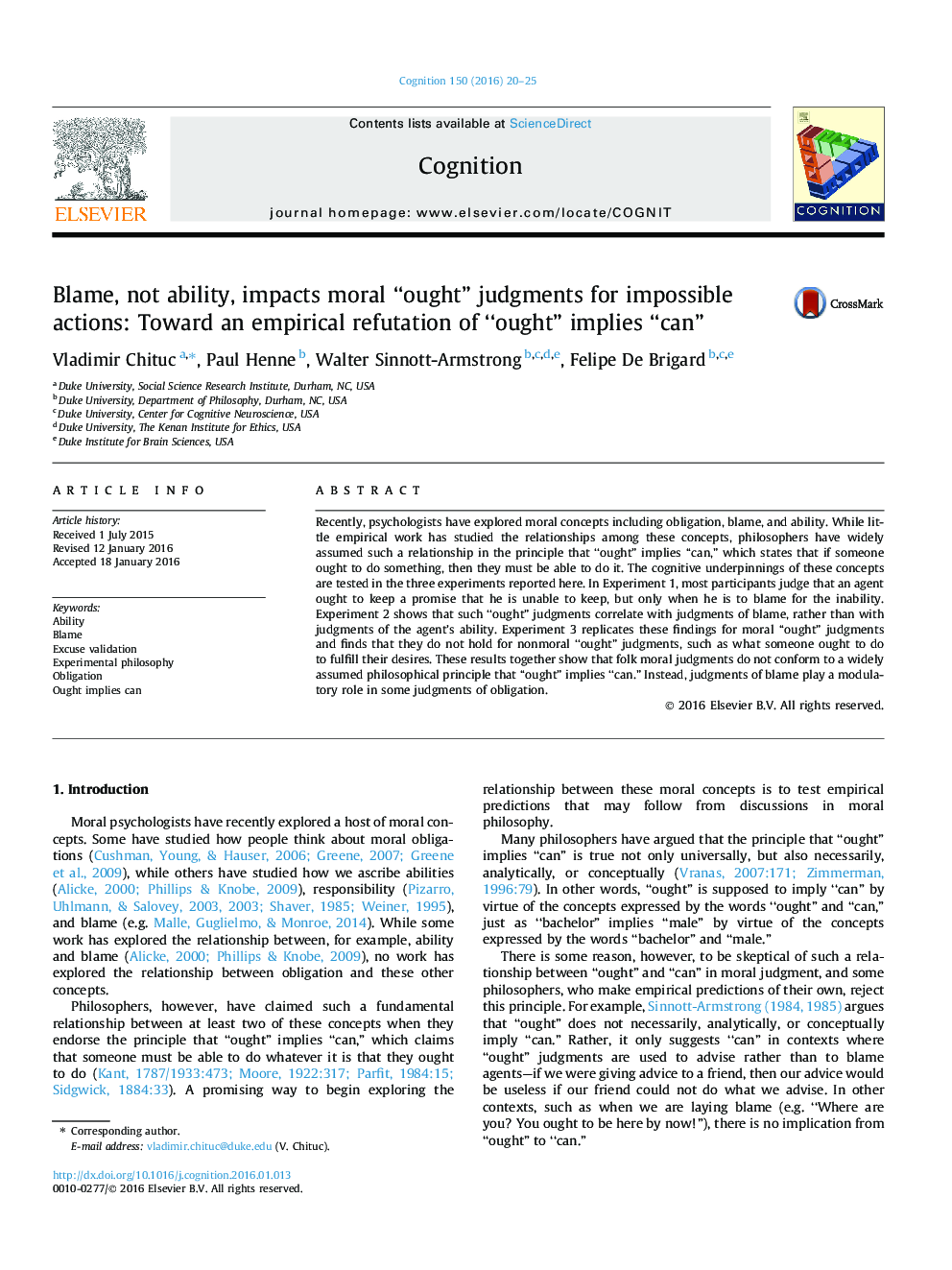| Article ID | Journal | Published Year | Pages | File Type |
|---|---|---|---|---|
| 7286204 | Cognition | 2016 | 6 Pages |
Abstract
Recently, psychologists have explored moral concepts including obligation, blame, and ability. While little empirical work has studied the relationships among these concepts, philosophers have widely assumed such a relationship in the principle that “ought” implies “can,” which states that if someone ought to do something, then they must be able to do it. The cognitive underpinnings of these concepts are tested in the three experiments reported here. In Experiment 1, most participants judge that an agent ought to keep a promise that he is unable to keep, but only when he is to blame for the inability. Experiment 2 shows that such “ought” judgments correlate with judgments of blame, rather than with judgments of the agent's ability. Experiment 3 replicates these findings for moral “ought” judgments and finds that they do not hold for nonmoral “ought” judgments, such as what someone ought to do to fulfill their desires. These results together show that folk moral judgments do not conform to a widely assumed philosophical principle that “ought” implies “can.” Instead, judgments of blame play a modulatory role in some judgments of obligation.
Related Topics
Life Sciences
Neuroscience
Cognitive Neuroscience
Authors
Vladimir Chituc, Paul Henne, Walter Sinnott-Armstrong, Felipe De Brigard,
